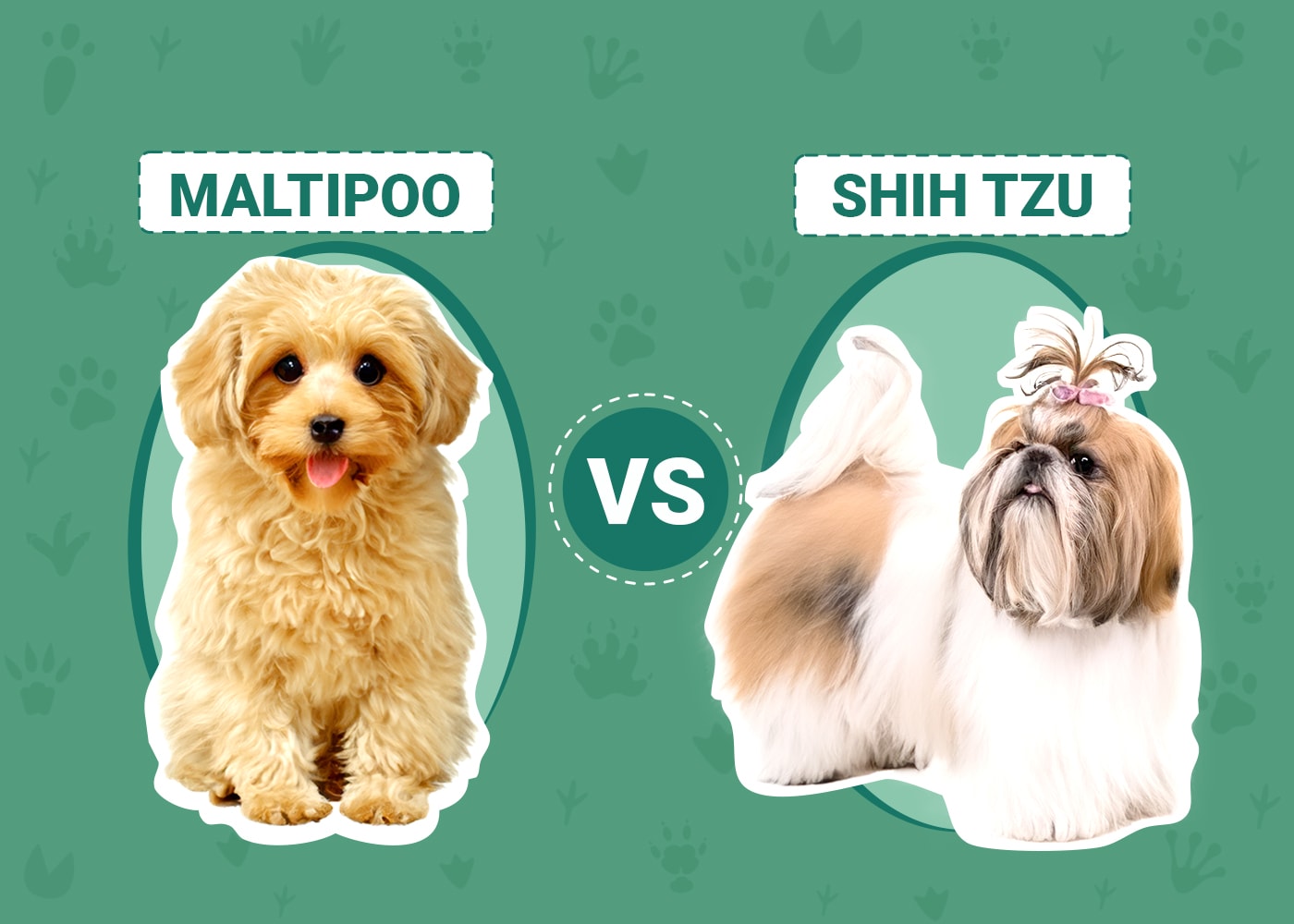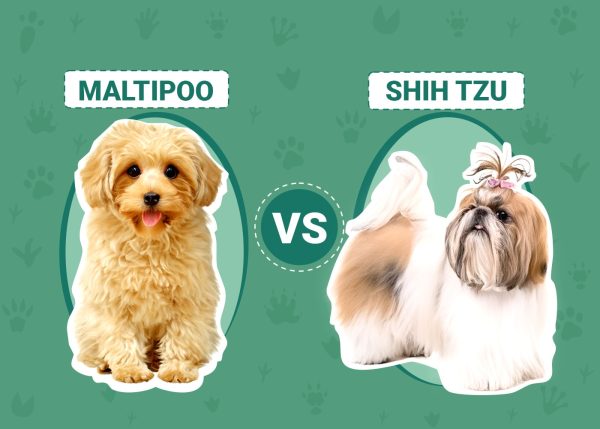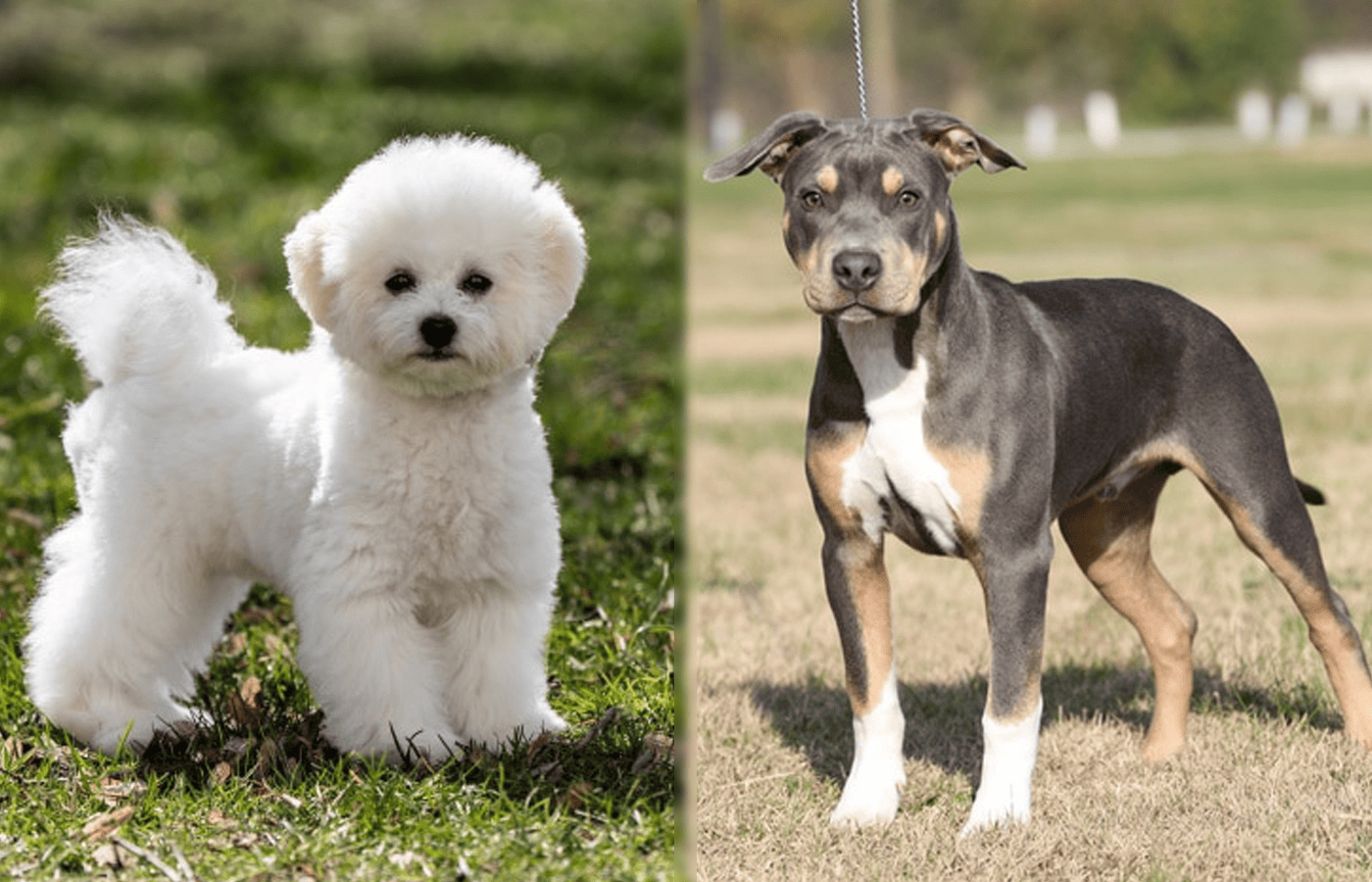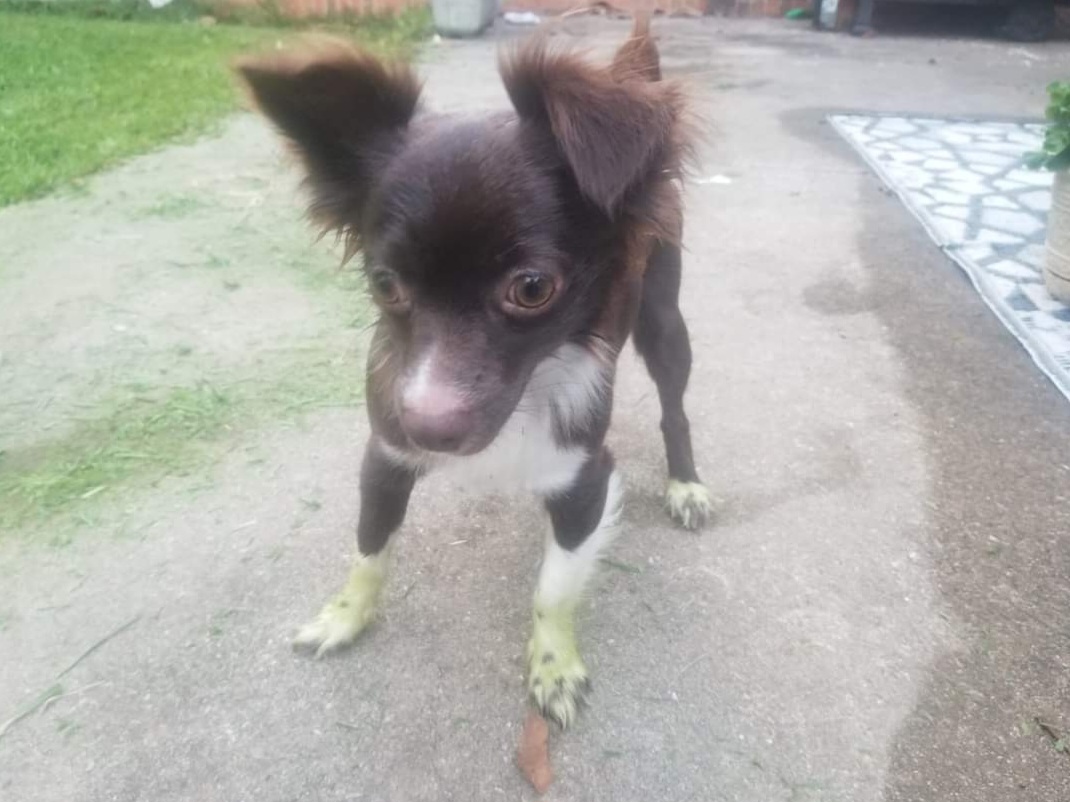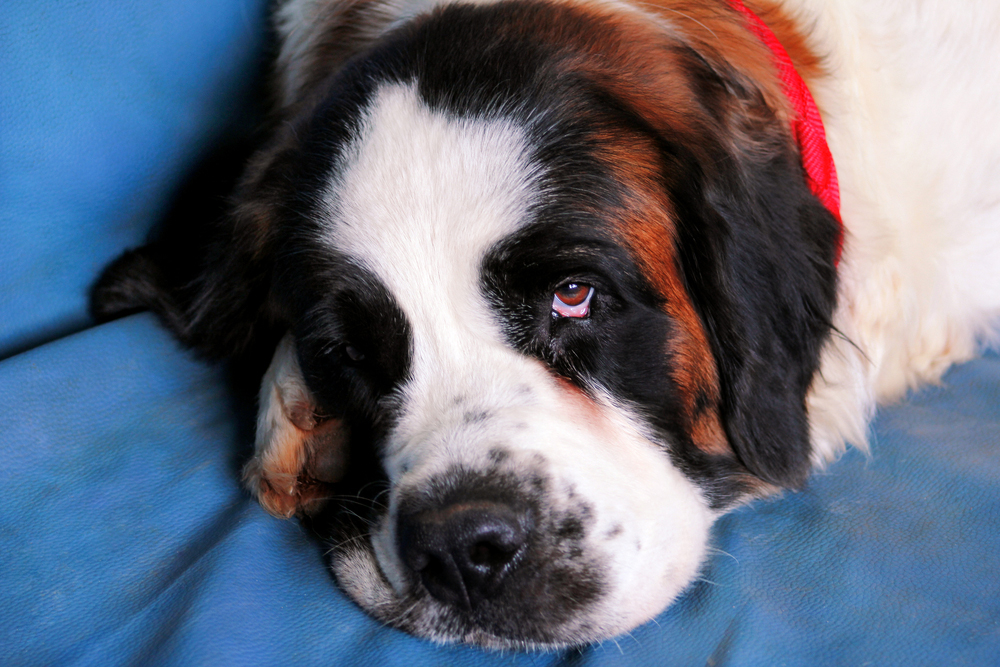Click to Skip Ahead
Both the Maltipoo and the Shih Tzu are adorable, affectionate, and loyal little dogs. They are small breeds with bubbly personalities, big smiles, and luscious locks. Both are renowned for being big-hearted softies that are particularly good with children. You can’t make a mistake, no matter which one you choose to bring home. Either would be a wonderful addition to the home and family.
There are, however, a few differences between the two breeds. These differences make them unique and distinct from one another. Let’s have a look at how these two cuties compare and see if we can help you make up your mind about which one should join the family.
Visual Differences
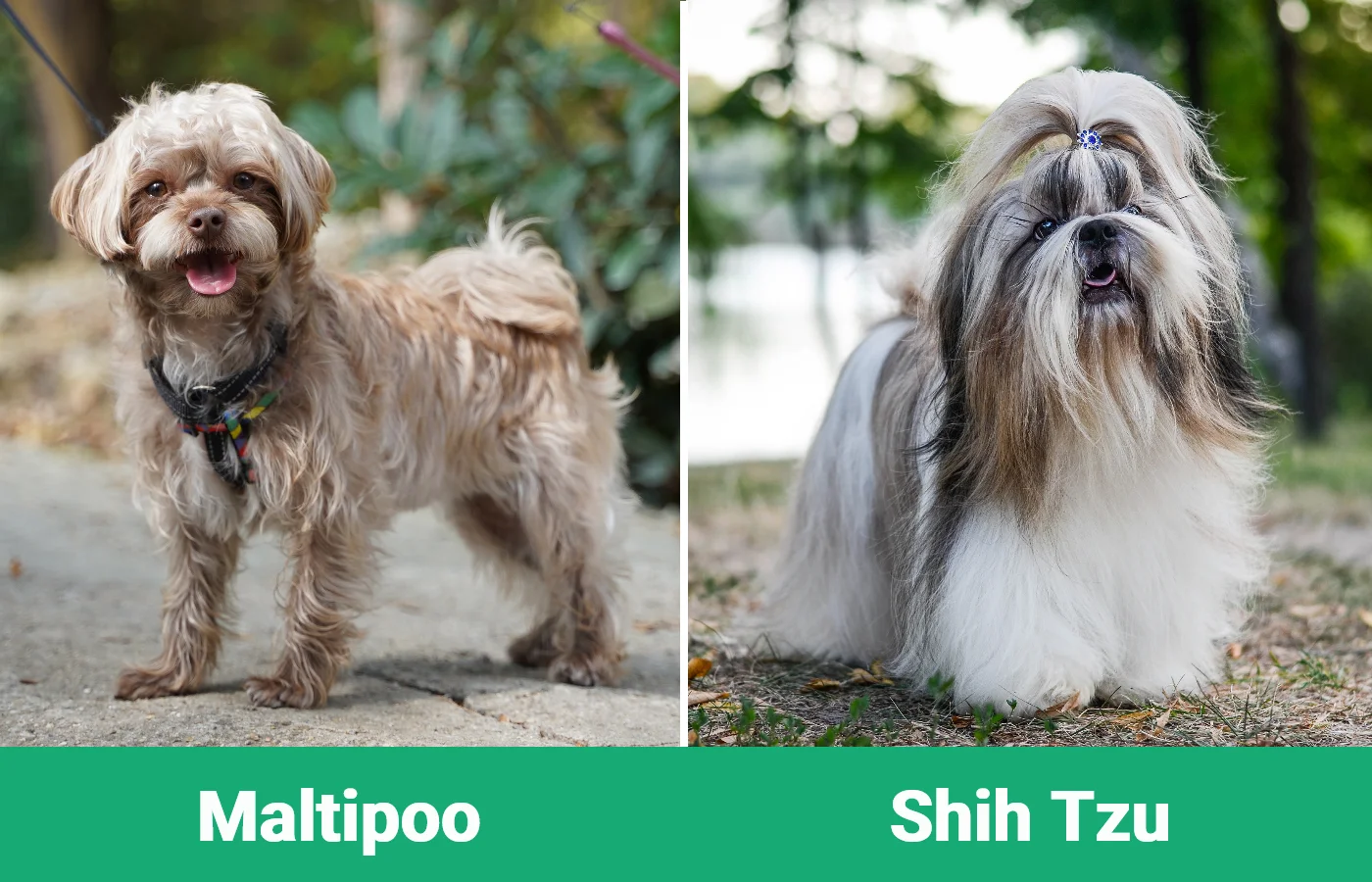
At a Glance
- Average height (adult): 5–15 inches
- Average weight (adult): 5–25 pounds
- Lifespan: 10–14 years
- Exercise: 30+ minutes a day
- Grooming needs: Moderate
- Family-friendly: Yes
- Other pet-friendly: Yes
- Trainability: Very good, eager to please
- Average height (adult): 9–10 inches
- Average weight (adult): 9–16 pounds
- Lifespan: 10–17 years
- Exercise: 30 minutes a day
- Grooming needs: High
- Family-friendly: Yes
- Other pet-friendly: Usually
- Trainability: Intelligent but can be stubborn
Maltipoo Overview
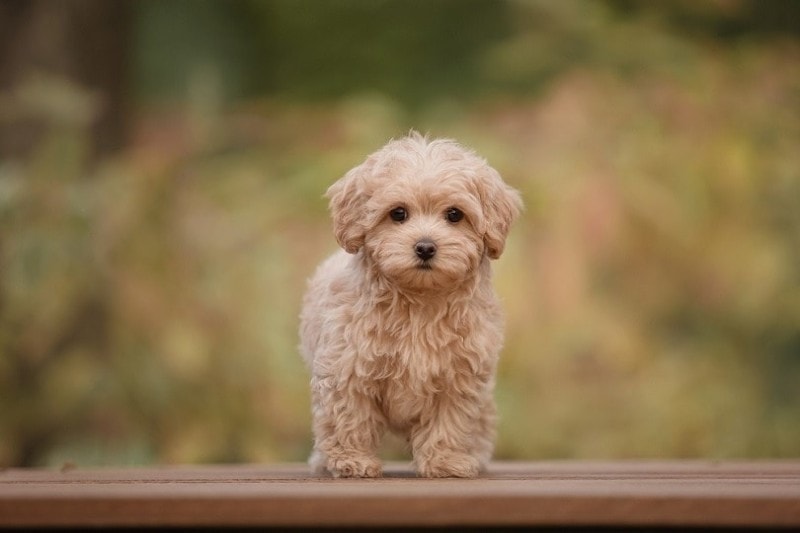
The Maltipoo is an adorable little crossbreed that has endeared itself to the dog-loving masses very successfully. It is created by crossing a Maltese with a Poodle. Since the type of Poodle used in the cross can vary, Maltipoos themselves can vary from individual to individual. Hence the large size variation observed in the breed.
The first Maltipoos were documented about 30 years ago. They are almost all, without fail, happy, bubbly little doggies that are eager to please. They are characterized by their scruffy or wavy coats of varying color and their pleasant, smiling faces.
Personality / Character
Maltipoos are a delight! They are always cheerful and eager to please. They are laid-back and adaptable, happy with whatever is going on, as long as their human/s are there. There is nothing unlikable about these little hounds.
Their affection is not reserved for their own chosen humans, either—they are just as likely to shower strangers with cuddles and kisses. They are equally as welcoming of other dogs and other pets.
If we had to identify one small fault, it’s that they don’t like to be left alone and they might set up a hullabaloo to let you know. We’re not sure that this can even be labeled as a fault though. After all, who would want to leave an adorable Maltipoo alone for just one second?!
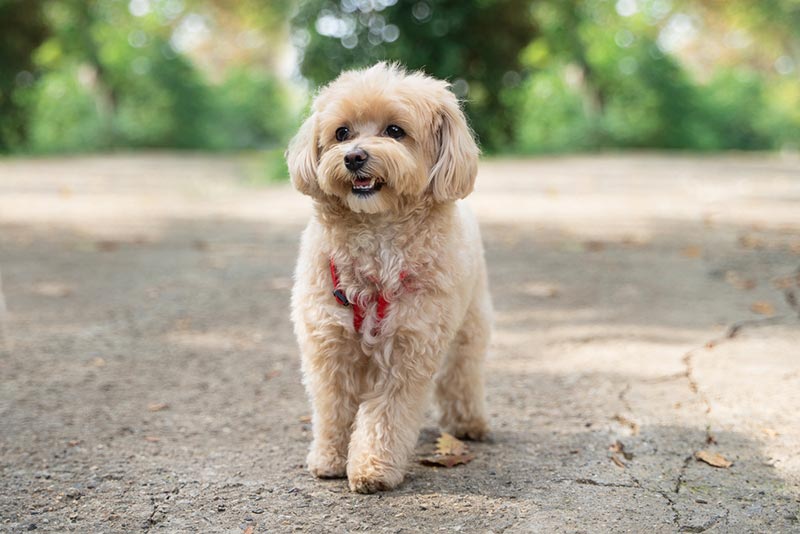
Exercise & Training
These pups are smart and obliging. That’s a great combination when it comes to training. The fact that they just want to please you means that you’re not likely to have any trouble training your Maltipoo. They quickly master simple commands and can even tackle more challenging dog obedience routines.
They are active and athletic moggies, so would relish joining their human family members in more physical pursuits, such as jogging and hiking. Even though they enjoy physical pursuits, their good behavior and well-being are not reliant on extended bouts of exercise. They are easygoing enough that just 30 minutes of moderate exercise a day should be quite sufficient to keep them happy and healthy.
Health & Care
Crossbreeds are generally considered to experience better health and vigor than the majority of purebred dogs. The Maltipoo is no exception. There are, however, a few conditions to which they are predisposed, probably as a result of their purebred ancestry. Maltipoo owners should be on the lookout for White Shaker Syndrome (especially in white dogs), dental problems and patella luxation.
Surprisingly, for a crossbreed, they are not particularly long-lived. One might expect a small crossbred dog to live well into its late teens. However, Maltipoos only live to about 13 years of age on average.
Their shaggy coats require moderate attention to remain free of tangles and mats. A minimum of two brushing sessions a week should keep your pup tangle-free.
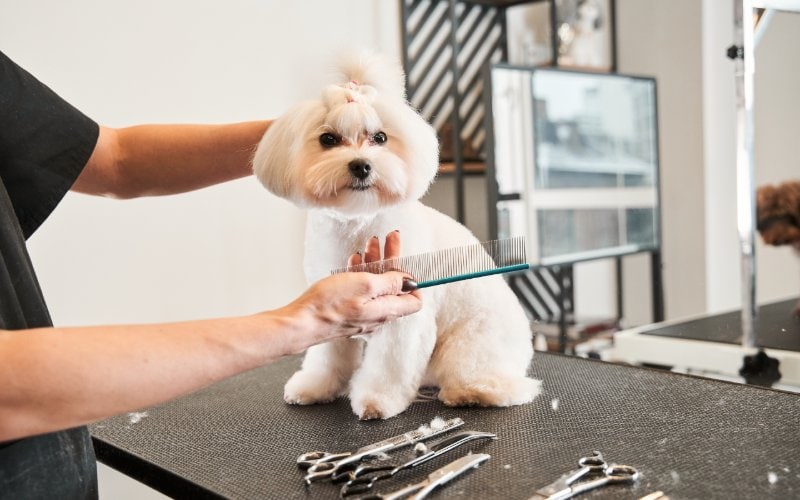
Breeding & Availability
Maltipoos become increasingly popular with each passing year, so they are relatively easy to find. The price range is variable depending on the type of Maltipoo that you think you’d like. Remember that Maltipoos themselves vary from dog to dog depending on the parentage. You would need to budget between $400 and $2,000 if you plan to get a Maltipoo from a breeder. That might seem like a huge range for a crossbred dog, but those in the upper price range are usually of the teacup variety—a very tiny Maltipoo indeed.
Consider getting your Maltipoo from a shelter instead, and you will spend substantially less at the outset and be supporting a good cause.
Suitable for:
Maltipoos fit in with just about every household or family. Old or young owners, quiet or busy homes, they are happy wherever they end up as long as they are loved and shown regular attention. They are equally happy sharing their space with other pets.
Homes with large, spacey yards or apartments with nothing more than a potted plant make no difference. Just make sure you don’t leave your little pooch alone for extended periods, as this will make them anxious.
Shih Tzu Overview
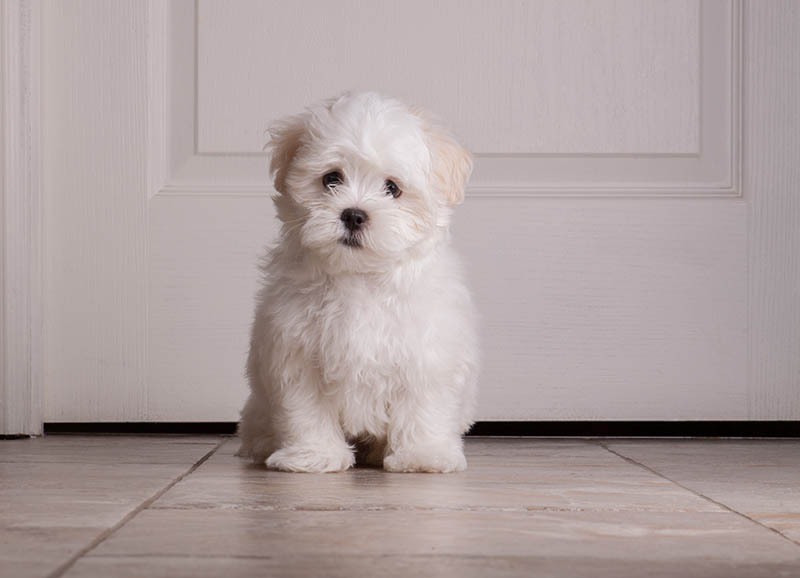
The regal Shih Tzu has its purebred origins in Tibet and China. The dog was a favorite amongst the Chinese nobility, where breeding programs sought to refine the breed. The name “Shih Tzu” translated from Mandarin means “little lion dog”. It wasn’t until the 1940s that Shih Tzus arrived on American soils where, unsurprisingly, they quickly became well-loved and very popular. In recent decades they have continuously ranked highly within the polls of most popular dogs to have as pets.
It is speculated that they may have been used as “alarm” dogs, in that they would alert their owners/handlers of visitors with a sharp yap. However, the consensus is that they were primarily bred as companion dogs. And how well they fulfill this calling!
Personality / Character
The Shih Tzu is an utterly charming little hound. They are invariably happy, lively, and friendly towards all and sundry. They adore children, although a Shih Tzu not exposed to kids early on may be a bit wary of them at first. Other than this, they get along well with people both young and old, as well as other dogs and pets.
On the whole, they are easygoing. The devoted bond they form with their humans means they do not tolerate being left alone for extended periods.
You might think that such a friendly, obliging little dog might be a bit of a pushover. This is not the case. Yes, they generally have very flexible boundaries, but on the rare occasion that those boundaries are overstepped, they might let you know with a snippy response.

Exercise & Training
Shih Tzus love to go walkies with their fur parents. This activity is enjoyable for them not because of the exercise itself but rather because of the time together with their human. Although they are lively little dogs, they generally don’t need more than 30 minutes of moderate exercise a day. This would be most beneficial to them if it was broken up into two short walks each day.
The little lion dogs are intelligent and they can easily learn and be trained. They greatly enjoy one on one training sessions with their special humans. Their desire to interact with and please is a compelling motivation to learn new tricks.
They may, however, exhibit a stubborn streak. So if you catch your Shih Tzu on a bad day, you should significantly lower your expectations! It is noted that they can be difficult to house train. Consistency is key when working with your Shih Tzu.
Health & Care
Despite several health concerns, Shih Tzus are long-lived little dogs.
The breed suffers from a condition known as brachycephaly. Animals with this condition have shortened heads. In the case of the Shih Tzu, the condition has been selectively bred as it is/was considered cute. Unfortunately, it results in a disease known as Brachycephalic Airway Syndrome (BAS), which can cause the poor little doggies to suffer discomfort or poor health. It also means they don’t thermoregulate very well and are sensitive to heat.
As purebred dogs, there are several other health conditions that they are genetically predisposed to. They require regular veterinary check-ups to monitor for these and keep tabs on their BAS.
Shih Tzus are renowned for their luscious, silky coats. Believe it or not, their coats are hair and not fur! As you might expect, their Rapunzel locks require regular attention and daily brushing.
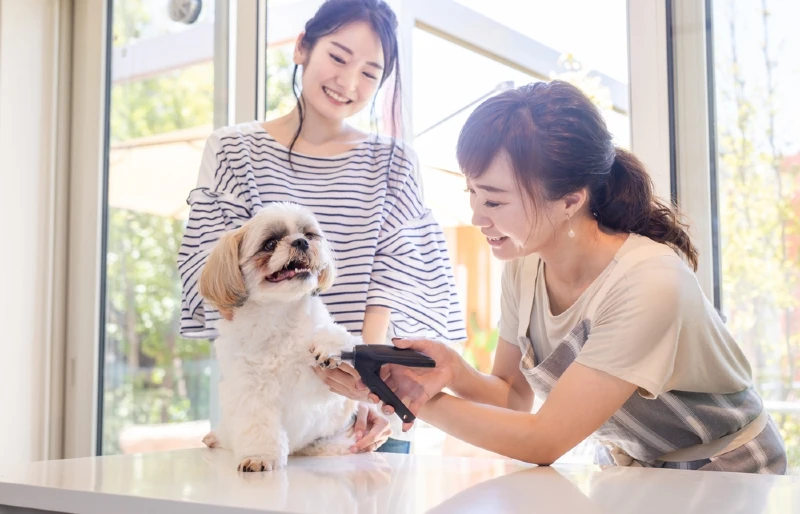
Breeding & Availability
Their popularity means that Shih Tzus are readily available. If you buy from a breeder, make sure you choose one who is reputable and can provide a health certificate. A breeder-acquired Shih Tzu will set you back anywhere between $600 and $1,800. Some can be substantially more.
Consider adopting your Shih Tzu from a shelter. Adoption fees are between $100 and $300, representing a substantial saving. You have peace of mind that you have saved a life. Dogs from shelters are rehomed with a clean bill of health and have been sterilized.
Suitable for:
Shih Tzus are suitable for almost any family except perhaps those that are particularly active and outdoorsy. They make particularly good apartment dogs considering their low exercise needs.
They just love to get and give love and would be more than happy being a lap dog. They don’t care if it’s the kids’ laps or grandma’s lap! They get on just fine with the other household fur children of all species.
Bear in mind that Shih Tzu humans need to be committed to their grooming needs and monitoring for health issues.
Which Breed Is Right for You?
After reading this, it can be seen that there are several stand-out key differences between the breeds, which hopefully will make your decision clearer. Let’s have one last look at these side by side.
The Shih Tzu is longer-lived so you can expect to have more happy years with this little doggie. There are, however, some potential question marks regarding their quality of life. The Maltipoo, while generally healthy all round, will probably live three to five years less than a healthy Shih Tzu.
Although you do get tiny Maltipoos, Shih Tzus are generally smaller than Maltipoos. They are also not as athletic or energetic as a Maltipoo can be. If you are looking for an apartment companion, the better choice will probably be the Shih Tzu. Having said that, the Maltipoos’ obliging and adaptable personality means that they are perfectly happy living in an apartment, too. If you are an active family who likes to hit the trails or go for long walks, the Maltipoo will be the better choice (depending on the Poodle cross).
Both breeds are considered hypoallergenic, but in terms of coat maintenance, the Maltipoo is the clear winner! You can expect to spend a substantial amount of time grooming your Shih Tzu.
This should help you make a more informed decision, and hopefully, now you are ready to welcome either a Maltipoo or Shih Tzu into your home. Whichever you end up choosing, you can’t go wrong with either one of these cuties.
Featured Image Credit to: Top – Alex Boc, Shutterstock | Bottom – Hannah Kipersztok, Shutterstock

